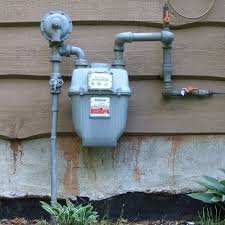Understanding Industrial Gas Meters: A Comprehensive Guide
These meters play a critical role in ensuring efficient energy use, cost management, and compliance with regulatory requirements. In this article, we explore the types, working principles, installation, benefits, and maintenance of industrial gas meters, providing a thorough understanding of their significance in the industrial sector.

Industrial operations often require significant volumes of gas for various applications, including heating, power generation, chemical processing, and manufacturing. To accurately measure, monitor, and manage gas consumption, industrial facilities rely on industrial gas meters. These meters play a critical role in ensuring efficient energy use, cost management, and compliance with regulatory requirements. In this article, we explore the types, working principles, installation, benefits, and maintenance of industrial gas meters, providing a thorough understanding of their significance in the industrial sector.
What is an Industrial Gas Meter?
An industrial gas meter is a specialized device designed to measure large volumes of gas consumption in industrial settings. These meters provide precise measurements, enabling businesses to monitor gas usage, optimize energy efficiency, and ensure accurate billing. Unlike residential or commercial meters, industrial gas meters are built to handle higher flow rates and pressures, making them suitable for heavy-duty applications.
How Do Industrial Gas Meters Work?
Industrial gas meters operate by measuring the flow rate of gas passing through the meter and converting it into volume or energy units. Depending on the type of meter, the measurement process may involve mechanical, electronic, or ultrasonic mechanisms. The most common measurement technologies include:
-
Diaphragm Meters:
-
These meters use a series of chambers and diaphragms that expand and contract as gas flows through, driving a mechanical counter to record the volume.
-
-
Turbine Meters:
-
Turbine meters use a spinning turbine wheel, which rotates at a speed proportional to the gas flow rate. The rotation is then translated into volume measurements.
-
-
Rotary Displacement Meters:
-
These meters feature two interlocking rotors that rotate as gas flows through the chamber, accurately measuring the gas volume.
-
-
Ultrasonic Meters:
-
Ultrasonic meters use sound waves to measure gas flow. These meters are highly accurate, have no moving parts, and are ideal for applications requiring precise measurements.
-
-
Coriolis Meters:
-
Coriolis meters measure mass flow by detecting changes in vibration frequencies caused by the gas flow. These meters are particularly useful for measuring high-pressure or high-density gases.
-
-
Thermal Mass Flow Meters:
-
These meters measure the heat transfer between a heated element and the gas flow, providing readings based on the mass of gas passing through.
-
Types of Industrial Gas Meters
Industrial gas meters are categorized based on their working principles and applications. The most common types include:
1. Turbine Gas Meters
Turbine meters are widely used in industrial settings due to their accuracy and ability to handle high flow rates. They are suitable for measuring natural gas, propane, and other types of gases in applications such as power plants and large-scale manufacturing facilities.
2. Ultrasonic Gas Meters
Ultrasonic meters are ideal for industries requiring precise measurements and minimal maintenance. They are commonly used in chemical processing plants, refineries, and gas distribution networks.
3. Rotary Displacement Meters
Rotary meters are robust and durable, making them suitable for demanding industrial environments. They are often used in gas distribution systems and large industrial plants.
4. Coriolis Gas Meters
Coriolis meters provide direct mass flow measurements, making them ideal for applications involving high-density or compressed gases. They are frequently used in petrochemical industries and high-pressure systems.
5. Thermal Mass Flow Meters
Thermal meters are used in applications requiring precise control of gas flow rates, such as semiconductor manufacturing, pharmaceutical production, and food processing.
6. Smart Gas Meters
Smart meters incorporate advanced technology, including IoT and wireless communication, to provide real-time data on gas usage. They are increasingly adopted in industries aiming to optimize energy consumption and reduce operational costs.
Applications of Industrial Gas Meters
Industrial gas meters are used across various sectors, including:
-
Energy Production: Monitoring gas consumption in power plants and energy facilities.
-
Chemical Manufacturing: Measuring gas flow for chemical reactions and processing.
-
Oil and Gas Industry: Managing natural gas distribution and storage.
-
Food and Beverage: Ensuring precise gas flow for packaging, carbonation, and heating.
-
Pharmaceuticals: Controlling gas flow for sterilization and production processes.
-
Metal Processing: Monitoring gas usage in furnaces and welding operations.
Installation of Industrial Gas Meters
Proper installation of industrial gas meters is crucial to ensure accuracy and reliability. The installation process involves the following steps:
-
Site Assessment:
-
Evaluate the site to determine the optimal location for the meter. The location should be accessible, well-ventilated, and compliant with safety standards.
-
-
Selection of Meter:
-
Choose a meter suitable for the specific gas type, flow rate, and pressure requirements.
-
-
Pipeline Preparation:
-
Ensure the pipeline is clean and free of debris before installing the meter. Proper alignment of the meter with the pipeline is essential.
-
-
Installation:
-
Install the meter according to the manufacturer’s guidelines, ensuring all connections are secure and leak-free.
-
-
Calibration and Testing:
-
Calibrate the meter to ensure accurate readings. Conduct tests to verify its performance and check for leaks.
-
Benefits of Industrial Gas Meters
The use of industrial gas meters offers numerous advantages, including:
-
Accurate Measurement:
-
Precise measurement of gas flow ensures fair billing and helps industries optimize energy usage.
-
-
Cost Efficiency:
-
Monitoring gas consumption helps identify areas of inefficiency, leading to cost savings.
-
-
Enhanced Safety:
-
Regular monitoring of gas flow detects anomalies, such as leaks, reducing the risk of accidents.
-
-
Regulatory Compliance:
-
Accurate measurement and reporting ensure compliance with environmental and safety regulations.
-
-
Data Insights:
-
Advanced meters provide real-time data, enabling industries to make informed decisions and improve operational efficiency.
-
Maintenance and Troubleshooting
Regular maintenance of industrial gas meters is essential to ensure their accuracy and longevity. Here are some maintenance tips:
-
Periodic Calibration:
-
Calibrate the meter periodically to maintain measurement accuracy.
-
-
Inspection for Wear and Tear:
-
Check for signs of wear, corrosion, or damage to the meter and its components.
-
-
Cleaning:
-
Keep the meter and surrounding area clean to prevent debris from affecting its operation.
-
-
Software Updates:
-
For smart meters, ensure firmware and software are updated regularly.
-
Common Issues and Solutions
-
Inaccurate Readings:
-
Recalibrate the meter or check for blockages in the pipeline.
-
-
Low Flow Sensitivity:
-
Inspect the meter for debris or damage to the internal components.
-
-
No Data Transmission (Smart Meters):
-
Check the power supply or communication module for faults.
-
-
Gas Leaks:
-
Immediately shut off the gas supply and contact a professional technician.
-
Future Trends in Industrial Gas Metering
The field of industrial gas metering is evolving rapidly, driven by technological advancements. Key trends include:
-
IoT Integration:
-
Smart meters connected to IoT platforms enable remote monitoring and control of gas consumption.
-
-
AI and Machine Learning:
-
Advanced analytics powered by AI help industries optimize gas usage and predict maintenance needs.
-
-
Energy Management Systems:
-
Integration with energy management systems allows for holistic monitoring of energy consumption.
-
-
Sustainability:
-
Development of eco-friendly meters and practices to reduce environmental impact.
-
Conclusion
Industrial gas meters are indispensable tools for managing gas consumption in various sectors. Their ability to provide accurate measurements, enhance safety, and optimize energy usage makes them a valuable asset for industrial operations. With advancements in technology, modern gas meters are becoming more efficient, reliable, and user-friendly, enabling industries to achieve greater productivity and sustainability. By understanding the functionality, benefits, and maintenance of industrial gas meters, businesses can make informed decisions to enhance their operational efficiency and energy management.
What's Your Reaction?















